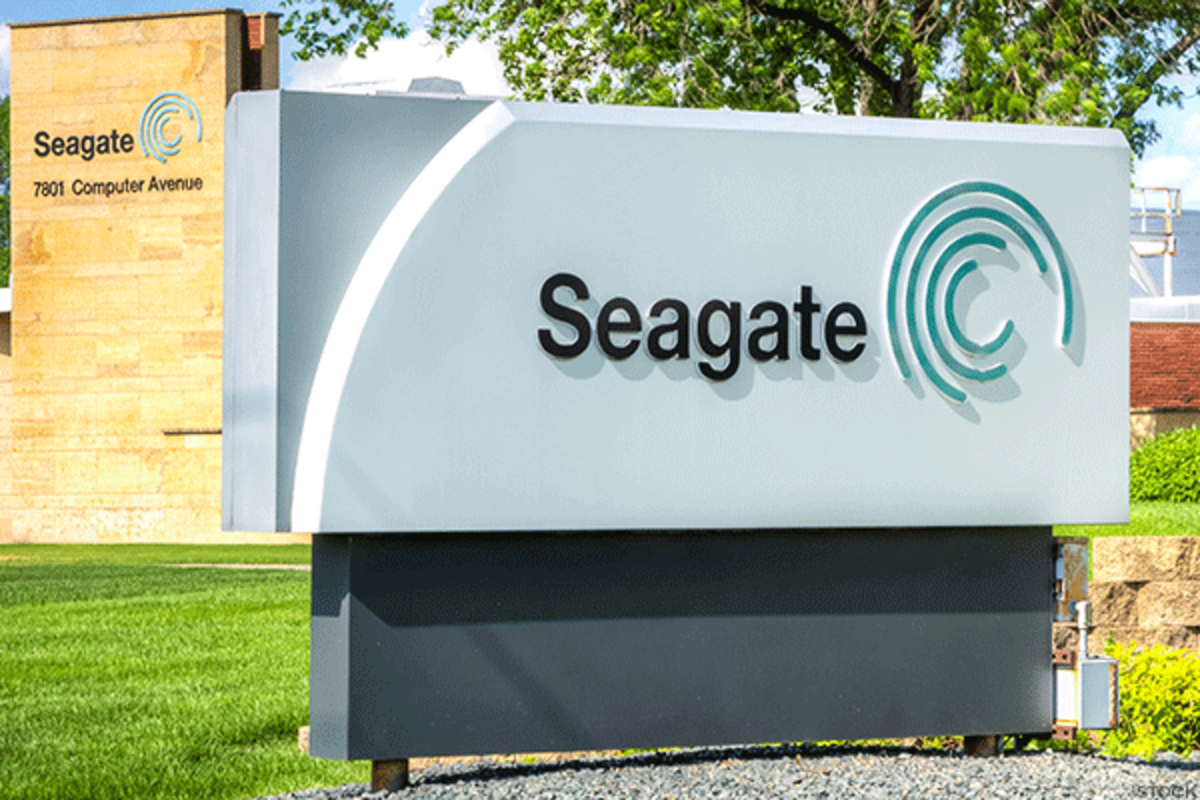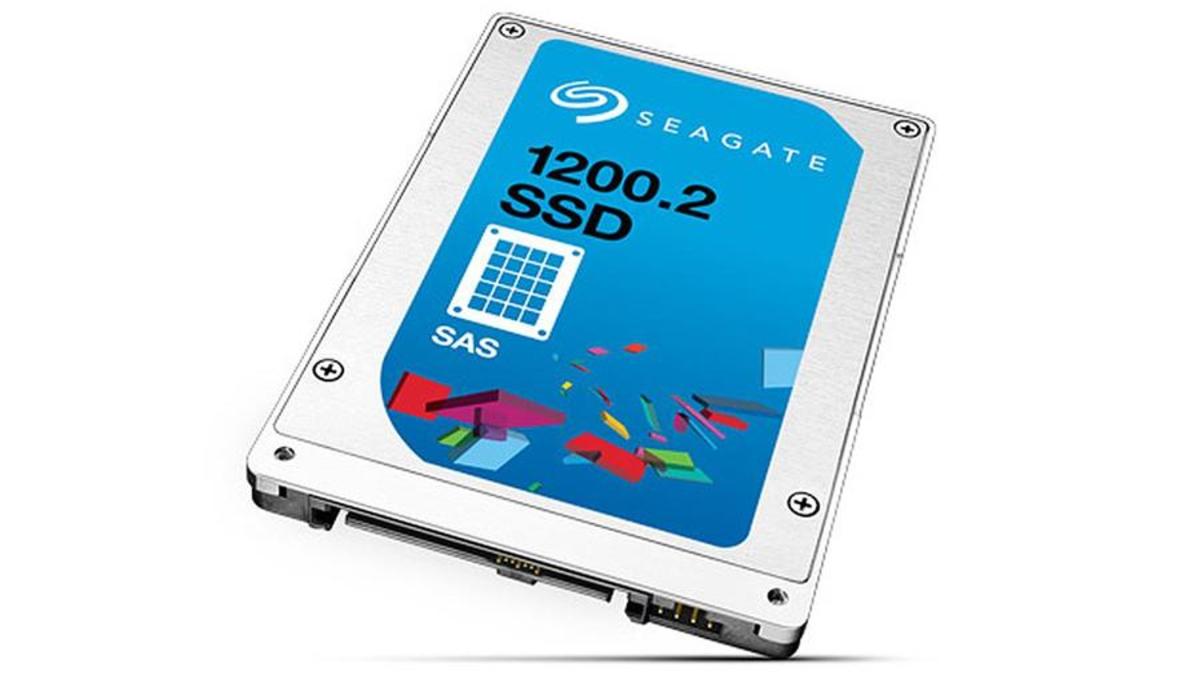
Seagate Technology (STX) is bringing down the HAMR.
The acronym stands for "Heat-assisted magnetic recording", but you pronounce it, "hammer", and it's a magnetic storage technology for increasing the amount of data that can be stored on a magnetic device, such as a hard disk drive.
Related: Alphabet earnings up next with Google parent's AI costs in focus
Seagate calls HAMR "the next generation of enterprise hard drive capacity" and CEO Dave Mosley told analysts that it "provides our customers with cost-efficient, scalable storage that we believe will prove critical in an era where data holds unprecedented value."
The world's largest manufacturer of hard disk drives reported fourth-quarter and full-year results on July 23 and Mosley said Seagate ended fiscal 2024 "on a high note, reflecting strong operational execution and more favorable supply demand dynamics."
"At the start of the fiscal year, we highlighted three financial priorities, namely to increase profitability, drive cash generation, and strengthen our balance sheet," he said. "Reflecting on our full year performance, we delivered on all three."
Mosley said that the Seagate's results were due in part to the build-to-order, or BTO, strategy that were in place to provide greater supply demand predictability and enhance cash resources.
"We attribute the underlying demand drivers to an increase from both traditional cloud computing workloads, as well as new AI-related deployments," he said. "While cloud service providers are continuing to build out that infrastructure, they increasingly focus on developing, deploying, and monetizing AI applications."

Is Seagate a backdoor AI stock?
Mosley said this involves training large language models and expanding the entire hardware stack to support future generative AI content-driven growth.
While hard disk drive demand pull-through related to AI is still relatively small, Mosley said, "We believe HDDs will play a crucial role in enabling both of these phases of the AI adoption curve."
Related: Analysts race to reset Tesla stock price targets after earnings
"By offering cost-efficient, scalable storage solutions, HDDs are ideal for maintaining the integrity of AI training data sets, as well as preserving the valuable content that AI engines are projected to generate in the future," he said.
Mosely also discussed generative AI, which can generate text, images, videos, or other data using generative models, saying that “as GenAI engines mature, customers expect an acceleration in content creation that will lead to significant demand for mass capacity storage.”
“We recognize that GenAI is still in its early stages of adoption,” he said. “However, this customer feedback combined with our early engagements with nearline cloud and OEM customers reinforces our view that mass capacity storage will be a beneficiary in both the cloud and at the edge as the adoption of these new exciting applications takes hold.”
Seagate reported fourth-quarter earnings of S1.05 per share, compared with a loss of 18 cents per share a year ago, beating analysts’ estimates of 75 cents.
Revenue totaled $1.89 billion, up from $1.60 billion a year ago, and coming in ahead of Wall Street’s call for $1.87 billion in sales.
Looking ahead, Seagate said it expects first-quarter revenue of roughly $2.1 billion, compared with estimates of $1.88 billion. The company anticipates adjusted earnings of $1.40 per share, compared with 75 cents per share estimates.
Seagate stock price targets shift
After the company posted its results, several analysts adjusted their price targets for Seagate.
Wedbush analyst Matt Bryson raised his stock price target to $135 from $130 while reiterating his outperform rating. In a research note, he wrote, "We believe STX hit on all the bogeys that matter to investors.”
More AI Stocks:
- Analyst adjusts Nvidia stock rating on valuation
- Analyst revises Facebook parent stock price target in AI arms race
- Google falling behind climate goals thanks to AI ramp up
“Seagate commented that its nearline exabyte supply is committed through the end of the calendar year, resulting in extended product lead times and overall tighter supply conditions,” he said. “Management anticipates growth to continue in fiscal 2025 driven by both traditional cloud computing workloads, as well as new AI-related deployments.”
Citi raised the firm's price target on Seagate to $125 from $120 and kept a buy rating on the shares.
Seagate reported sales, gross margins, and operating profits significantly above expectations, aided by stronger-than-expected recovery in its cloud customers, which resulted in a shift to higher capacity drives and improved pricing, the analyst tells investors in a research note.
The firm said management's guidance suggests demand strength at cloud customers is expected to be sustained.
Rosenblatt analyst Kevin Cassidy raised the firm's price target on Seagate to $125 from $115 and kept a buy rating on the shares.
The company's build-to-order strategy allowed for better manufacturing utilization and increased prices, resulting in non-GAAP gross margins expanding to 30.9% from 26.1% last quarter and 19.5% last year, the analyst said.
Cassidy added that the firm continues to recommend the stock because of the company's HDD technology leadership, operating expertise, and " investor-friendly capital allocation.”
Related: Veteran fund manager sees world of pain coming for stocks







